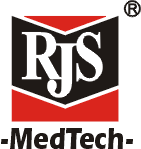Recent news reports and commentary are very consistent in describing the issue. The majority of hospitals in China are government-owned, and the majority of doctors work for those institutions. But hospitals now receive much less money than they once did from the government, leaving them with increasing patient loads from China¨s aging population and less money and resources to provide care. As a result, Chinese doctors are paid very little, perhaps only $500 per month, when they start out. Doctors can be eager to supplement these low salaries with bonuses or commissions that they may receive from prescribing expensive drugs or performing surgeries that require the use of high-cost medical devices. This problem represents the conflict between the potential for profit in the fast growing drug and device market in China and the efforts of the government to keep health care costs low.
Although the press has been covering medical corruption stories for years, amidst recent scrutiny of the drug and device markets, even more attention is being paid to this phenomenon. Additional stories may be found here and here. Most recently, a story published by the Twenty First Century Economic Herald on September 9, 2013, reports on possible excesses in coronary stent implantation in China. The article asserts that, in other countries, it is rare for individuals to require three or more stents, but in China it is not unusual to find individuals with implantations of five to ten stents. Some medical experts have indicated that these multiple-stent implants are excessive and may be driven by the fact that an individual physician can receive a commission for each implanted stent that is sold.
These types of stories have sparked a discussion in the press of what policy or legislation the government might adopt, not just in terms of outright commissions, but also in terms of what types of research money medical personnel may accept from industry and what conferences and industry events they may attend. The National Commission on Health and Family Planning, the China FDA, and other agencies revised the code of conduct for health care personnel in 2012. The revised code includes broadly phrased provisions that might prohibit much of this behavior, but the code has so far not prevented or reduced these questionable practices. In the meantime, some commentators have begun to call for higher level regulations from the State Council (China¨s main executive body) to deal with these issues. It will be important to monitor future developments in this area to see whether this debate moves the Chinese government to become more restrictive of its doctors and other health care personnel.

